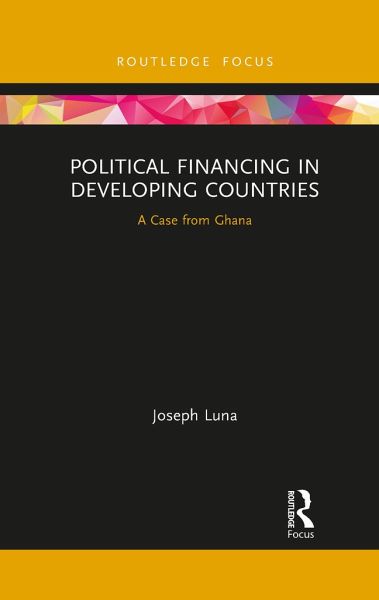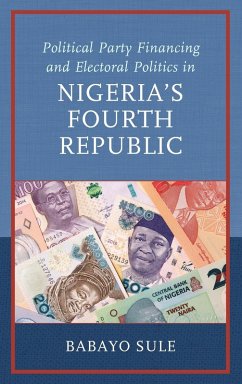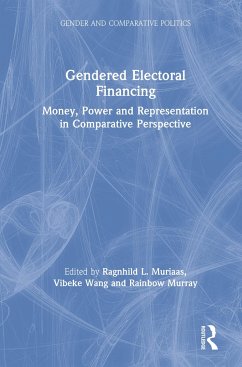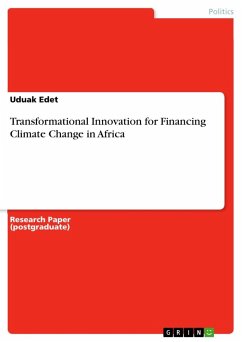
Political Financing in Developing Countries
A Case from Ghana
Versandkostenfrei!
Versandfertig in 1-2 Wochen
28,99 €
inkl. MwSt.
Weitere Ausgaben:

PAYBACK Punkte
14 °P sammeln!
This book argues that to fully grasp the decision-making of politicians and political actors in developing countries, we must first understand how politicians finance their campaigns for office-and to whom they are indebted and expected to repay. Political Financing in Developing Countries focuses on Ghana in depth, a country often held up as an example of a successful, two-party democracy with regular party changes in government. However, it is unlikely that candidates and political parties are wealthy enough to finance the increasing costs of campaigns and constituent demands, and successful...
This book argues that to fully grasp the decision-making of politicians and political actors in developing countries, we must first understand how politicians finance their campaigns for office-and to whom they are indebted and expected to repay. Political Financing in Developing Countries focuses on Ghana in depth, a country often held up as an example of a successful, two-party democracy with regular party changes in government. However, it is unlikely that candidates and political parties are wealthy enough to finance the increasing costs of campaigns and constituent demands, and successful democratic outcomes could be masking a system that actually hinders development progress. Drawing on nearly 200 interviews and extensive fieldwork, this book posits that political funds are extracted by an iron square of politicians, bureaucrats, construction contractors, and political-party chairs which rigs the procurement of local-development projects to generate kickbacks. The iron square remains robust across party changes in government due to reciprocity obligations that minimize contractors' income risks. Ultimately, this web of kickbacks diminishes the quality of development by reducing the funds available for projects and distorting incentives to monitor projects. To break this iron square, the book recommends replacing sealed-bid procurement-a "best practice" that ignores on-the-ground realities-with a system that accounts for income stabilization and social obligations. Overall, the book argues that scholars of development should advance research on political finance to identify and then alleviate the games that decision makers must play to survive in the political sphere. Political Financing in Developing Countries will be an important and timely resource for scholars across development studies, politics, economics, and African Studies.














